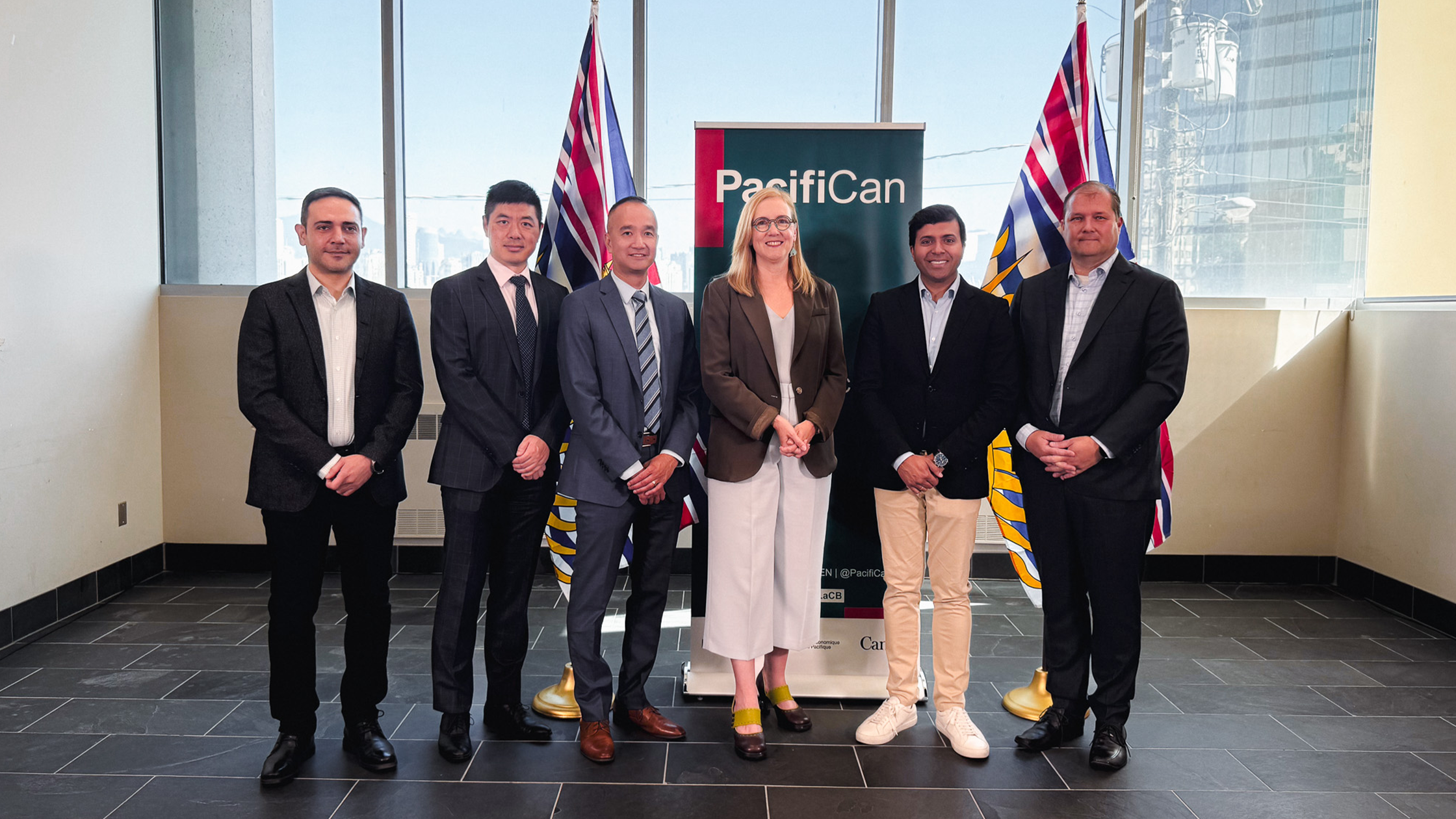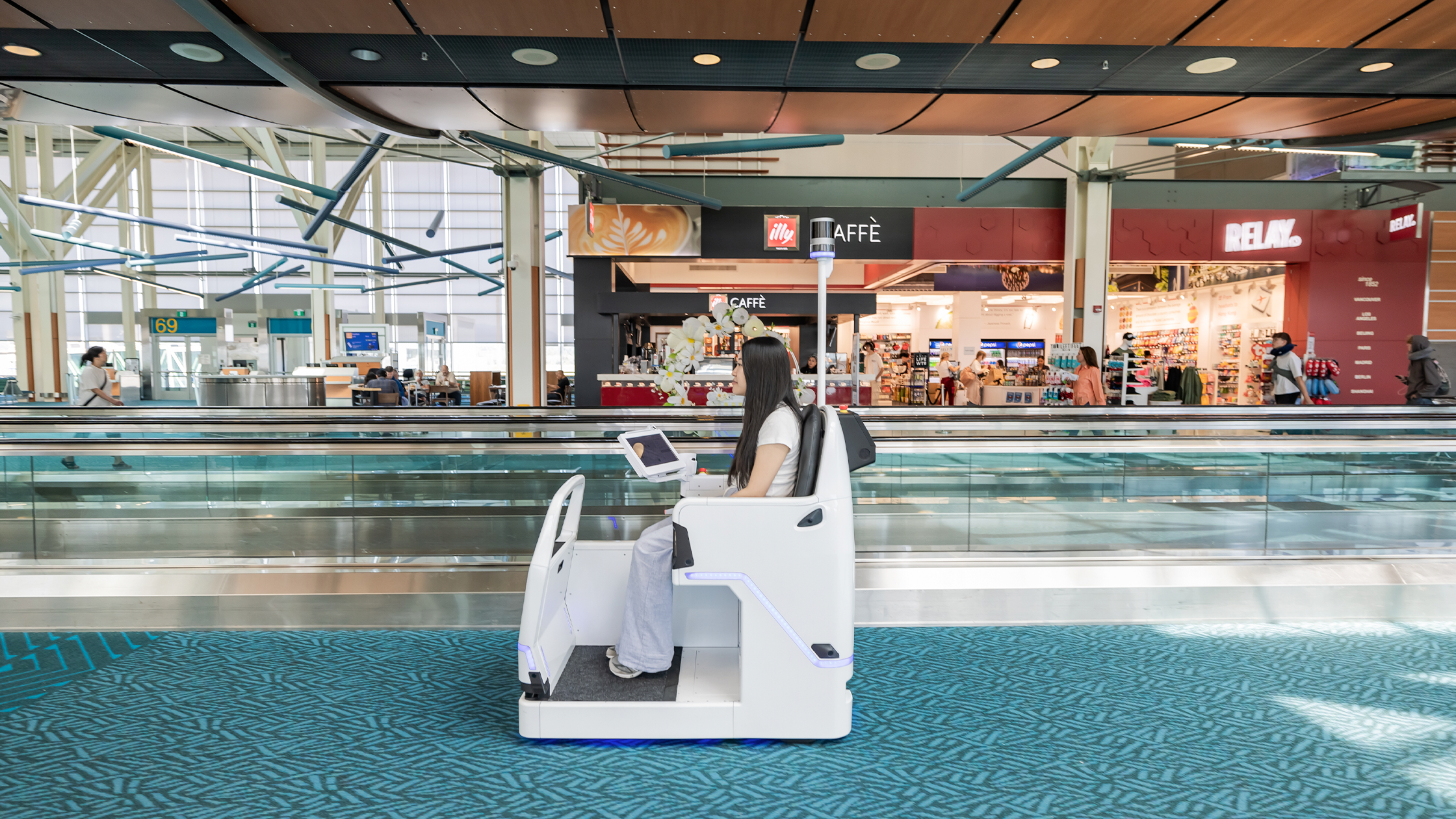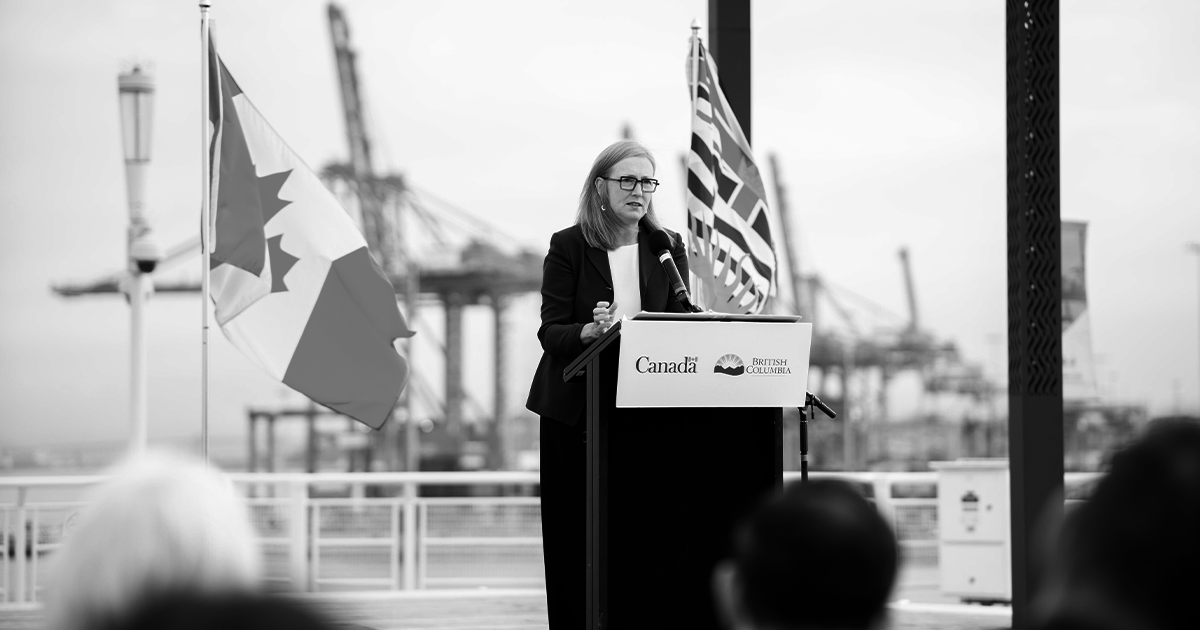Province partners with YVR to electrify, reduce emissions
The Initiative aims to:
- increase the resilience and productivity of B.C. industries, including supply chains;
- grow B.C.s innovation sector by increasing jobs and global exports through scaling up new B.C. technology products and services; and
- reduce carbon emissions through the adoption of made-in-B.C. clean tech solutions.
The creation of the Integrated Marketplace Initiative is a key action of the StrongerBC Economic Plan, which moves B.C. forward by tackling the challenges of today, while growing an economy that works for everyone.
Quick Facts:
- YVR expects to invest $135 million over the next 10 years to achieve net-zero carbon emissions by 2030 and signed the federal governments Net Zero Challenge.
- YVR is the first airport in Canada to achieve the highest level of Airport Carbon Accreditation (4+ Transition).
- YVR recently signed commitments with two Cascadia Corridor airports (Seattle-Tacoma and Portland) to collaborate on decarbonize aviation, including areas of ground support equipment and the development of sustainable aviation fuel.
- More than 50% of licensed ground-handling vehicles at YVR are electric, and the airport has installed 94 airside charging stations for aircraft support vehicles.
Learn More
For more about the StrongerBC Economic Plan, visit: https://strongerbc.gov.bc.ca/plan/
For more about YVR's Digital Twin project, visit: https://www.yvr.ca/en/media/newsreleases/yvr-digital-twin-launch
Government of Canada's Net Zero Challenge: https://www.canada.ca/en/environment-climatechange/news/2022/08/net-zero-challenge.html
YVR Reaches Highest level of Airport Carbon Accreditation:
https://www.yvr.ca/en/media/news-releases/2022/yvr-achieves-level-4-aca
Original News Release:
https://news.gov.bc.ca/27928
Backgrounders
Integrated Marketplace Initiative facts
The Integrated Marketplace Initiative is a project that links a group of strategic buyers with suppliers (sellers) to implement, scale up, and ultimately export B.C. clean-tech solutions. The initiative will start by working with key identified transportation sites in B.C. to address transportation-related environmental impacts within their operations.
The Province’s Crown agency, Innovate BC, will lead the operations and implementation of the initiative and hire a team to continue to support and develop identified projects.
The initiative will:
- work with targeted businesses at a “testbed” or industry-specific sites, such as airports or seaports, to identify common business needs related to reducing greenhouse gases, improving productivity or improving safety;
- source clean technology and innovative solutions that satisfy the identified business needs from B.C. companies;
- test the innovation at the testbed sites to understand and evaluate the solution’s performance, with risk and cost shared across multiple businesses;
- allow for accelerated time to scale up successful innovation by having multiple customers built into the process;
- expand to other testbeds in other sectors to speed up process and adoption of innovation that aligns with government’s priorities.
The Government of B.C. is investing up to $11.5 million, as part of the StrongerBC Economic Plan, to develop the Integrated Marketplace Initiative. Each identified testbed will be provided up to $1 million a year over three years to support the development and sourcing of innovative solutions through the Integrated Marketplace Initiative.
The three main goals of IMI are to:
- Increase the resilience and productivity of B.C. industries, including supply chains.
- Grow B.C.’s innovation sector by increasing jobs and global exports through scaling up new B.C. technology products and services.
- Reduce carbon emissions through the adoption of made-in-BC clean-tech solutions
What people are saying about the Integrated Marketplace Initiative
Brenda Bailey, Parliamentary Secretary for Technology and Innovation –
“Innovation drives productivity and growth for our economy. I am pleased to see the Integrated Marketplace Initiative up and running, so that we can bring the market to our B.C. tech companies, while expanding their potential. I can’t wait to see what sustainable, innovative and practical solutions that are created from this initiative that will benefit all British Columbians.”
Gerri Sinclair, B.C.’s innovation commissioner –
“The integrated marketplace presents an enormous opportunity for B.C. industry to work with local innovative companies to solve business problems. This will help our industries to be more resilient and competitive, while also helping our small innovation companies to secure customers, scale up and export solutions to other markets. The end goal is to support both large and small businesses in B.C. to work together to reduce greenhouse gas emissions and be competitive in today’s economy.”
Raghwa Gopal, president and CEO, Innovate BC –
“We are thrilled to be working with the Province and YVR on the Integrated Marketplace Initiative. Many of the tech companies that we work with often run into obstacles when it comes to testing and supplying proof of concept to larger buyers. This model will allow for resource and risk sharing to develop results, which will allow B.C. companies to grow faster than ever before.”
Dan Burgar, CEO, Frontier Collective –
“We're living through a technological revolution as the world is rapidly shifting. Our region needs to be bold and disruptive if we want to become a global leader. As an organization that represents B.C.’s fastest-growing industries in frontier technology and innovation, Frontier Collective believes in projects like the Integrated Marketplace Initiative to unlock new opportunities of rapid innovation. This is the type of investment that we need more of to better support our tech ecosystem in Vancouver and the rest of the province. We can’t wait to see more of these types of frontier technology and innovation projects that develop to help solve sustainability challenges locally and beyond.”
Andrew Petter, chair, Innovate BC board of directors –
“Innovate BC is harnessing the power of innovation to build a robust and sustainable provincial economy that works for all. By linking the innovative needs of YVR and other large organizations with the innovative capacities of local entrepreneurs, integrated marketplaces have the potential to hugely accelerate these efforts. Everyone at Innovate BC is excited to be part of this groundbreaking new initiative.”
Colleen Giroux-Schmidt, co-chair, BC Climate Solutions Council, and vice-president of corporate relations, Innergex Renewable Energy –
“We know that addressing the climate emergency also represents a significant economic opportunity for B.C. to seize. Now more than ever, we need to work together to create these innovative systems to keep B.C. safe, secure and advancing into the future. The Integrated Marketplace Initiative launch at YVR will be a great starting point to accelerate the development of workable solutions to reduce GHGs in our main transportation hubs – and create solutions we can export to the rest of the world to achieve climate commitments.”
Sue Paish, CEO, Digital Global Innovation Supercluster –
“The digital supercluster is proud to be aligned with the Province of B.C. and YVR in their mission to support and implement innovative and sustainable made-in-B.C. technologies. This type of collaborative innovation is an incredibly powerful method of maximizing the impacts of B.C.’s talent and clean technology sector, and will help B.C. continue to grow and lead in the push towards a low-carbon economy.”
Ged McLean, executive director, B.C. Centre for Innovation and Clean Energy –
“Many startups and scale-ups recognize localized procurement as a key requirement to growth and technology advancement. The integrated marketplace provides a missing critical link between B.C.’s clean energy innovators and our corporate industry leaders that must overcome ‘hard to decarbonize’ challenges to meet net-zero commitments, create green jobs and drive a low-carbon economy. It’s exciting to see B.C. lead the way for local businesses to sell innovation domestically.”
Greg D’Avignon president and CEO, Business Council of British Columbia –
“Clean-technology adoption and innovations are key to increasing our productivity and attracting the investments that will enable all B.C. businesses to compete, scale in size, and grow people’s incomes. We must move urgently toward these collaborations to implement made-in-B.C. innovations, new low-carbon energy solutions, and clean technologies and infrastructure that leverage the advantages we have to reduce emissions globally, and here at home.”
Gurmesh Sidhu, co-founder and chief product officer, Moment Energy –
“The Integrated Marketplace Initiative will help clean-tech startups like Moment Energy grow a local customer base and gain fantastic opportunities for proof-of-concept projects. This program provides the groundwork for new, innovative technologies and helps modernize our electricity grid for the challenges ahead.”
Nancy Olewiler, co-chair, BC Climate Solutions Council, and director of the School of Public Policy, Simon Fraser University –
“Initiatives like the integrated marketplace could help the transition to low-carbon resilience in B.C. and beyond as the Province continues to work with Indigenous communities, local communities, strategic partners and other parties to augment and accelerate the clean-tech solutions supporting our climate goals.”
Integrated Marketplace Initiative at YVR
Vancouver International Airport (YVR) will be the Integrated Marketplace Initiative’s first marketplace, or testbed.
The B.C. government is providing up to $2.5 million over three years for pilot projects at the YVR testbed, creating a significant opportunity for B.C. businesses to test and provide solutions.
Through the initiative, an alliance of companies will come together to work to test solutions to business challenges at YVR. Innovate BC will match potential buyers with innovators (sellers). This will provide the sellers with proof of concept, which will support their abilities to export. YVR is exploring potential projects across various areas of the airport which could include alternative fuel solutions and further expanding shared electric charging infrastructure. YVR will further refine its approach as it continues to build out a more responsive, connected, and sustainable airfield.
The successful technologies created will support the growth and broader demand of made-in-B.C. solutions and support exports.
YVR is targeting net-zero carbon emission by 2030 with the goal of becoming one of the greenest airports in the world, and is committed to investing $135 million over the next 10 years to achieve net-zero carbon emissions by 2030.
More About Us
You May Also Like
These Related Stories

New digital tools being tested to improve people’s health

Robotic pods to enhance visitor accessibility at Vancouver International Airport through B.C.’s Integrated Marketplace



Comments